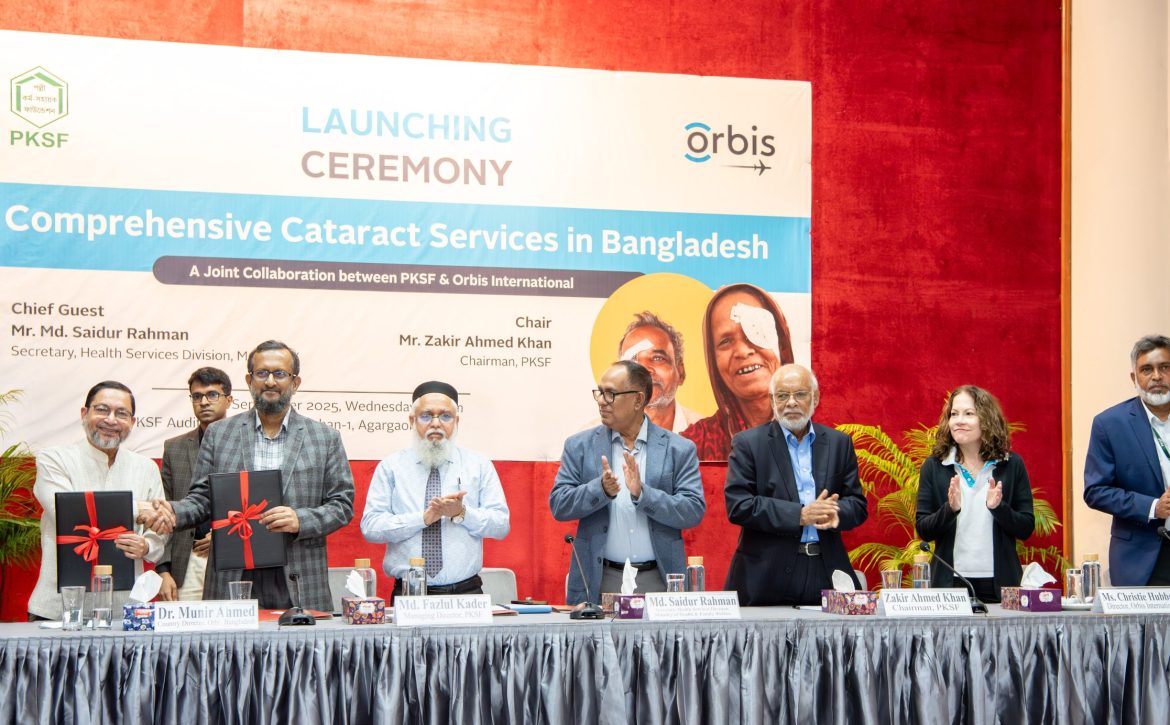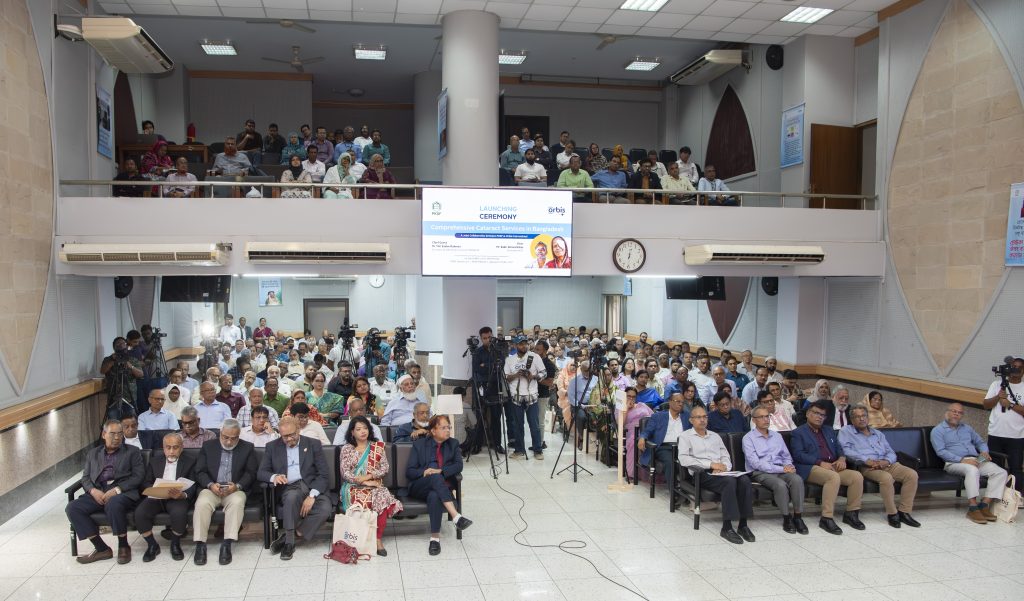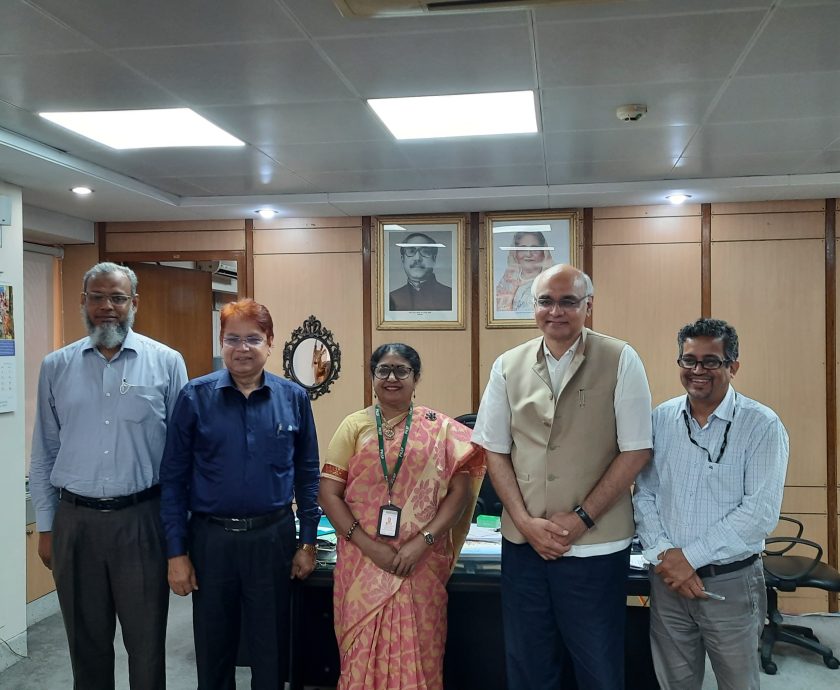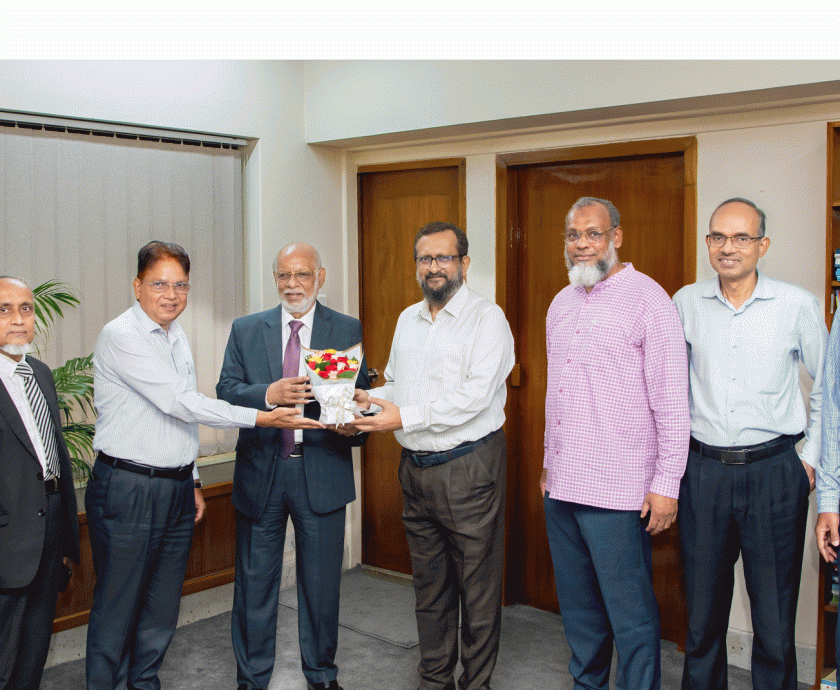PKSF, Orbis launch initiative for 100,000 cataract surgeries

Palli Karma-Sahayak Foundation (PKSF) and Orbis International have launched a joint initiative to provide eye screening for 1 million low-income people and conduct 100,000 cataract surgeries over the next two years. The initiative, titled ‘Comprehensive Cataract Services in Bangladesh’, aimed at eliminating avoidable blindness in the country.
The initiative was inaugurated today at PKSF Bhaban-1 in Agargaon, Dhaka. The event was presided over by Zakir Ahmed Khan, Chairman of PKSF. The Chief Guest of the ceremony was Md Saidur Rahman, Secretary of the Health Services Division under the Ministry of Health and Family Welfare. The Special Guests were Professor Dr Md Abu Jafor, Director General of the Directorate General of Health Services (DGHS), and Christie Hubbard, Director of Foundations and Institutional Resource Development at Orbis International. The welcome address was delivered by Md Fazlul Kader, Managing Director of PKSF, while the vote of thanks was offered by Md Hasan Khaled, Deputy Managing Director of PKSF. An overview of the initiative was presented by Dr Munir Ahmed, Country Director of Orbis International Bangladesh.
The Chief Guest, Md Saidur Rahman, said that without eyesight, a person becomes unable to work. When vision is restored through cataract surgery, individuals regain their ability to work, which significantly contributes to enhancing national productivity and achieving the Sustainable Development Goals (SDGs). He further stated that this initiative will strengthen the National Blindness Prevention Program through a coordinated public-private action plan, enabling people in remote areas of the country to access modern eyecare services.
Special Guest Christie Hubbard said that cataract is the major cause of blindness in Bangladesh, and yet it remains one of the most easily treatable conditions. For nearly four decades, Orbis International has achieved remarkable success in restoring the eyesight of thousands of people in Bangladesh through cataract surgeries.
PKSF Chairman Zakir Ahmed Khan said that PKSF has established a wide network across the country through its Partner Organizations. Utilizing this network, PKSF places special emphasis on mitigating health- and livelihood-related risks, while implementing preventive healthcare and primary treatment initiatives. He noted that in many remote areas where government services often cannot reach, PKSF continues its activities through its Partner Organizations. He expressed hope that this initiative of conducting 100,000 cataract surgeries would make a significant contribution to poverty alleviation.
PKSF Managing Director Md Fazlul Kader said that since 2012, PKSF has been implementing initiatives of this kind. Recently, PKSF developed its Strategic Plan based on three core pillars—enhancing economic opportunities, building resilience, and enhancing capacity. One of PKSF’s key strategic goals is to reduce livelihood- and health-related risks. To this end, preventive healthcare activities are already being undertaken. In continuation of these efforts, this joint initiative with Orbis International to reduce avoidable blindness will help restore the eyesight of rural and marginalized communities and pave the way for their overall development.
The overview of the initiative was presented by Dr Munir Ahmed, Country Director of Orbis International Bangladesh. He shared that across the country, around 550,000 people aged 30 years and above are visually impaired, with nearly 70 percent suffering blindness caused by cataracts. Since a large portion of them belong to the working-age population, this has a negative impact on national productivity. He further noted that under this initiative, 100,000 cataract surgeries will be carried out over the next two years.
Under comprehensive cataract services initiative, with support from PKSF’s Partner Organizations, eye screenings for one million patients will be conducted through 5,000 outreach programs. In addition, over 1,200 healthcare workers will be trained on primary eye screening, and referral at Orbis-affiliated eye hospitals. Across 50 districts of the country, 200 government-run Community Eye Centers and more than 100 Vision Centers operated by Orbis-affiliated eye hospitals will function as referral and follow-up points. Furthermore, 25 Orbis-affiliated eye hospitals will play a key role in identifying cataract patients and performing cataract surgeries.





